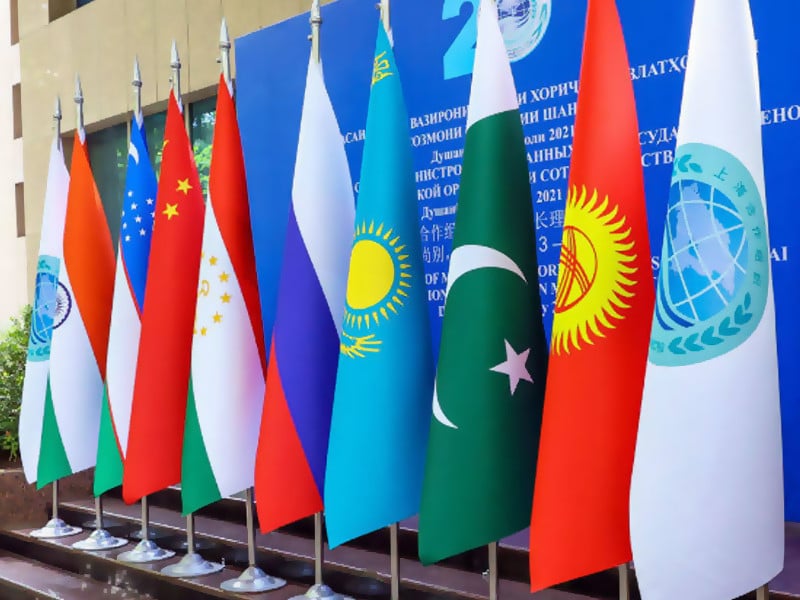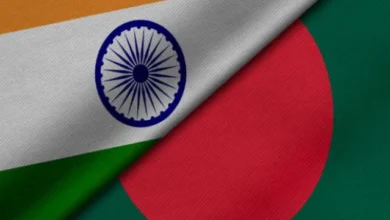Convening a highly successful Shanghai Cooperation Organisation (SCO) summit in a smooth manner in the midst of not-so-smooth political scenario, is undoubtedly a feather in the cap of the present government.
The entire scheduled proceedings and meetings, at core as well as on sidelines, went ideally pragmatic and befitting. The occasion brought some optimistic characteristics, of intellectual as well as common mind, during this brief festivity. General sentiment towards the summit was positive. Normally frowned-upon and criticised; the closure of roads, academic institutions, offices, business and virtual cordoning of the capital for security reasons was not only accepted by the public as a necessary measure for the event, but also obeyed and cooperated with collectively by the residents of twin cities.
Established in Shanghai on June 15, 2001 by five nations, the SCO now comprises 26 countries; 10 members (including Pakistan since 2017), two observers and 14 dialogue partners.
The member states and two observers (Afghanistan and Mongolia) have geographical proximity while the dialogue partners are even from far like Cambodia, the Maldives and Middle Eastern countries. The main areas decided for cooperation are cultural and humanitarian, trade and economic, and political and diplomatic. Under these umbrella heads fall all subjects of relevant fields.
The summit held in Islamabad on October 15-16, chaired by the prime minister of Pakistan, was the 23rd meeting of the Council of Heads of Government of the SCO. The discussions covered the entire range of subjects falling in the mandate of the organisation.
It was agreed to cooperate for implementation of the Belt and Road Initiative (BRI) besides using the potential of countries in the region, international organisations and multilateral associations to create in the SCO region a space for broad, open, mutually beneficial and equal interaction in accordance with the norms of international law, mutual respect and consideration of national interests. The SCO members have a particular interest in the trade dynamics in the region. The joint communique of the meeting emphatically mentions that “the heads of delegation consider it important to continue joint efforts to counter protectionist trade measures that are contrary to WTO rules and regulations, as well as to continue working on strengthening the rules-based WTO, non-discriminatory, open, equitable, inclusive and transparent multilateral trading system, based on the WTO”.
This initiative by the SCO provides an opportunity to move forward for regional integration in socio-economic cooperation and coordination, particularly in the trade field. Along with the SCO, other regional platforms may be made more vibrant to achieve mutual cohesion.
Initiated in 2001, the Central Asia Regional Economic Cooperation (CAREC) is a partnership of 11 countries and development partners working together to promote development through cooperation, leading to accelerated economic growth and poverty reduction.
It is guided by the overarching vision of “Good Neighbours, Good Partners, and Good Prospects”. Pakistan joined the programme in 2010 and has since been participating actively in its proceedings.
CAREC also anticipates its region to emerge as the centre for trade and commerce. With the Central Asian Republics (CARs) arising as a major hub of economic and trade activity at the junction of Asia and Europe, CAREC may be expected to bear the torch on behalf of regional players in the coming years.
BRICS is another forum which promises economic uplift in the region with mutual cooperation of the member states. The title BRICS comes simply from the initials of the founding members; Brazil, Russia, India, China, and South Africa. Subsequently, Egypt, Ethiopia, Iran and the UAE have also joined the group. BRICS was actually formed in the early years of the millennium in the backdrop of trade negotiations to counter the hegemonic moves from the developed North towards the developing South in the WTO regime. Pakistan has been aspiring to join BRICS since its very inception.
Since the conclusion of the SCO summit in Islamabad, it has been in the air that Russia and India may facilitate Pakistan’s move to join it. Diplomatic prudence is required to further the cause.
Last, and in no way the least, is the South Asian Association for Regional Cooperation (Saarc), set up in 1987 by seven members from the region (Afghanistan joined much later as the eighth) with the usual ambitious agenda of cooperation in all socio-economic fields.
However, despite the passing of almost four decades, hardly any tangible progress has been made in economic and trade areas. The reason for this is strange to none; the ubiquitous state of affairs involving strained and constrained relations between the two major members who are next door neighbours too.
The present global trade dynamics and interests of the South Asian region call for revitalising Saarc in the arena of trade and commerce. Most of the countries in the above-mentioned organisations belong to this region having much in common; diverse seasons, cropping patterns, demographic makeup and socio-ethnic bonds across borders.
There is a need to utilise the platforms of these forums pragmatically for the uplift of people. Pakistan may focus on a proactive approach and accelerate coordination at the diplomatic and political levels with all the players around. There is no dearth of diplomatic, technocratic and professional capital in the country if used in a concerted manner, a bit detached from rogue politics.
Pakistan can, and has been accomplishing the role of participating and tackling bilateral, multilateral, and regional economic and trade issues fairly and admirably. In the multilateral trade parleys, Pakistan has been enjoying enviable status among others.
Throughout the years of GATT and WTO, Pakistan has been assigned a leading role in various bodies and groups, especially in the developing and least developed countries (LDCs) forums.
Around the advent of this millennium when trade negotiations under the auspices of the WTO were shadowing all other events on the international front, Pakistan was playing a central part in consultations, especially in the areas of Agreement on Agriculture (AoA), Agreement on Sanitary & Phytosanitary Measures, Trade Related Intellectual Property Rights (TRIPs) and Services.
In 2005, when the Doha Round was the table talk of most of the formal and informal diplomatic and academic sittings, a high-powered meeting at the ministerial level of G20, a group of developing countries on AoA, was convened by Pakistan at Bhurban in order to develop the G20 members’ negotiating stance on agricultural subsidies and market access tools for further rule-making in the WTO regime.
The opportunity provided by the SCO summit may be capitalised upon forthwith. The Ministries of Foreign Affairs, Commerce, Climate Change along with line agencies like TDAP and PEPA may take the lead with professional and expert backing from the Ministries of Planning, Finance and other governmental and non-governmental agencies.
Both the opposition and the treasury benches need to work in unison for national interest in the socio-economic arena. Whereas the opposition may be urged to refrain from downplaying and undermining the achievements of the government on the economic front, which are quite a few actually during the past months, the onus of restraint is rather more on the government to avoid any hindrance keeping the opposition aloof from the mainstream of national affairs. A robust economy leads to political stability and vice versa.
The writer is ex-joint economic adviser to the government of Pakistan, now a freelance consultant







